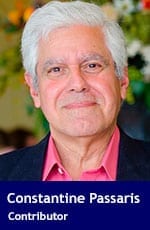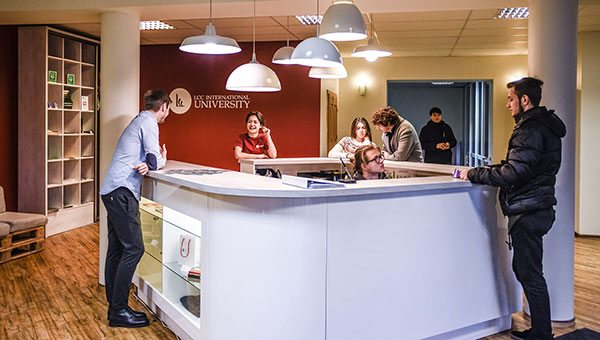 University professors have a unique, daunting and exciting responsibility. They’re tasked with educating, empowering and inspiring the next generation of leaders.
University professors have a unique, daunting and exciting responsibility. They’re tasked with educating, empowering and inspiring the next generation of leaders.
And not just our next political leaders. I’m also referring to the next generation of leaders in all fields of human endeavour. In the arts and sciences, in business and technology, in agriculture and trade, in fisheries and medicine, in engineering and community service. And that’s just a short list of the economic and social empowerment that defines the 21st century.
As the temporary custodians of one of our most valuable economic assets, university professors are directed to shape, develop and nurture the hearts and minds of young women and men. Over the last few decades, I’ve dedicated my intellectual engagement and expertise towards educating the next generation of young women and men from New Brunswick.
A recent invitation from a university in Eastern Europe provided me with a singular opportunity that very few of my colleagues in the western world are exposed to. The invitation from the LCC International University in Lithuania tasked me with teaching economics courses, conducting my research and participating in their activities.
Two factors weighed in my decision to accept their invitation. First, it would be an intellectual adventure and an opportunity to play an academic James Bond in a country that very few academics have seen. Second, the words of Winston Churchill kept ringing in my ear. After the end of the Second World War, he said: “From Stettin in the Baltic to Trieste in the Adriatic, an iron curtain has descended across the continent.”
These were the forces that propelled me to spend three months last fall in Lithuania. As recently as 1991, it was part of the U.S.S.R. and operated under the political and communist system of economic governance.
Lithuania’s strategic location on the Baltic Sea attracted Napoleon Bonaparte, Josef Stalin and Adolf Hitler, as well as countless invasions from the Prussians, the Germans and the Russians. In between fighting off invaders, Lithuania found time for cultural pursuits and the promotion of its visual arts, music and theatre. The famous composer Richard Wagner often conducted their symphony orchestra.
My greatest apprehension was in teaching a student body that was very different. The young women and men who are next in line to become the new leaders of Eastern Europe were a delight to teach. They came from Russia, Chechnya, Lithuania, Ukraine, Georgia, Belarus, Moldova, Albania, Armenia and Kazakhstan.
University professors also have a unique vantage point in front of a class to evaluate the disposition, capabilities and preparedness of their students for positions of leadership in their chosen professions and disciplines. My students in Lithuania passed that litmus test with flying colours.
To begin with, all of my students were fluently trilingual. They spoke their native language, Russian and English. They were engaged in their studies, disciplined in their academic pursuits, bright, resourceful and critical thinkers. And they had an insatiable desire to learn about the western ways and in particular about how free enterprise worked in North America.
Their high schools had performed a stellar job of preparing them for university studies. They were conversant in current affairs and had a global mindset. I was astounded to learn that Lithuania has a literacy rate of 99.8 per cent.
For the duration of my stay in Lithuania, I had the opportunity to observe and take the pulse of a new generation of Eastern European leaders. There is no denying that they’re determined to chart a new course of transformational change from a centrally-planned economy to a free-market system.
I was particularly impressed with my students’ aversion to the corruption that existed in their home countries during the days of Soviet occupation. They were determined to wipe out corruption as soon as they were in a position of authority and leadership.
I often pressed them to give me concrete examples of the corruption they encountered. One of the examples cited most often was of friends who landed a job because their dad was a politician. My response was to tell them that this happens in Canada as well except that we call it networking!
Of course, they related much more serious violations of business ethics and fraud that took the form of bribes to government officials. About €4 billion is still missing from several Moldovan banks.
I left Lithuania and my multicultural cohort of Eastern European students with a positive and confident outlook. I’m confident that the women and men who in a few years will be in influential positions are capable of providing the leadership, energy and vision to confront the challenges and opportunities in their countries during the 21st century.
Dr. Constantine Passaris is a professor of economics at the University of New Brunswick and a national research affiliate of the Prentice Institute for Global Population and Economy at the University of Lethbridge.
The views, opinions and positions expressed by columnists and contributors are the author’s alone. They do not inherently or expressly reflect the views, opinions and/or positions of our publication.


